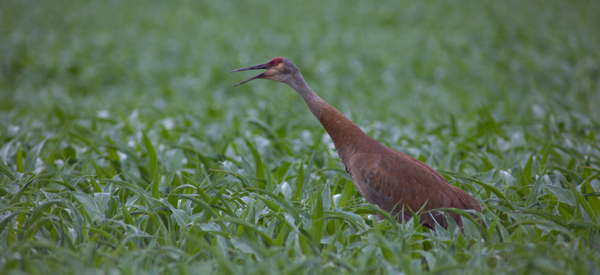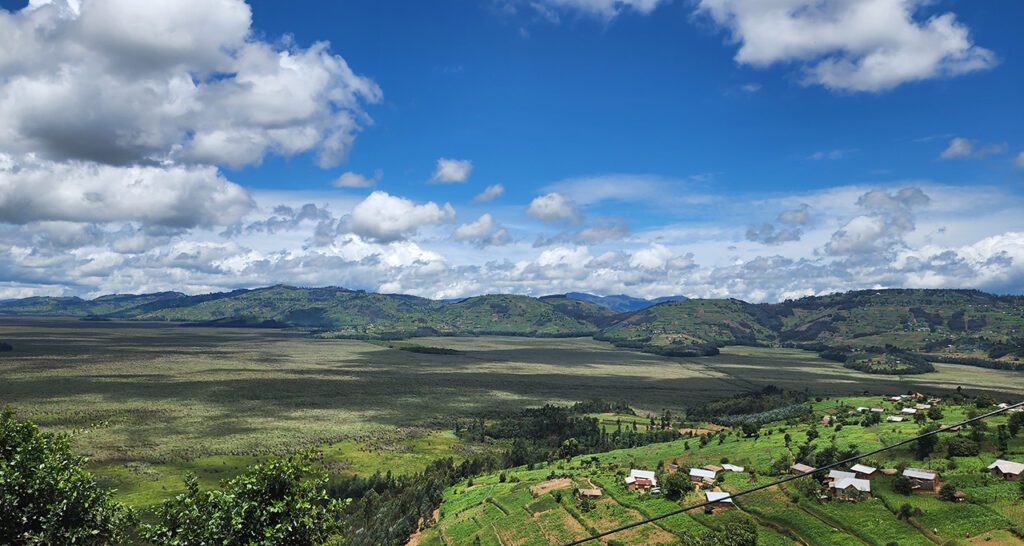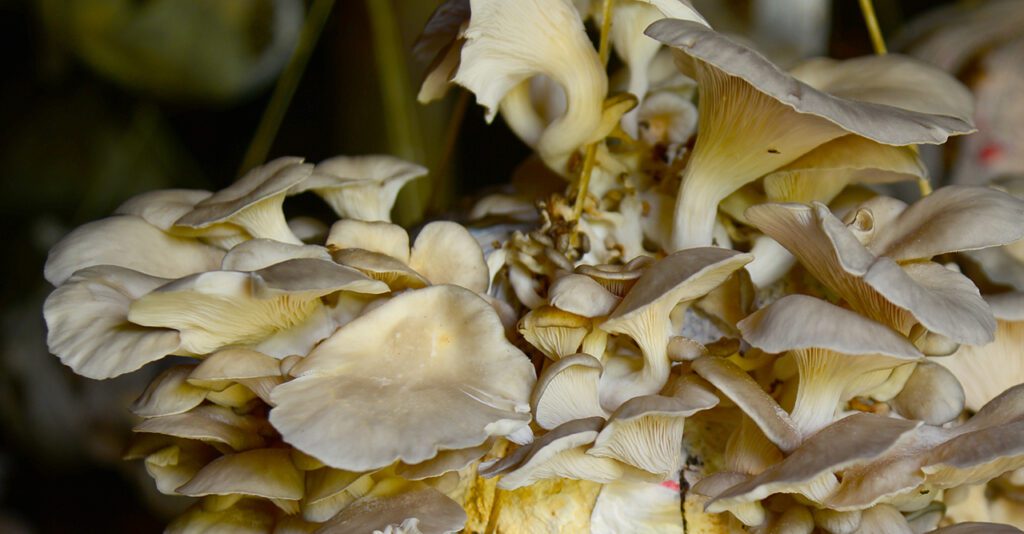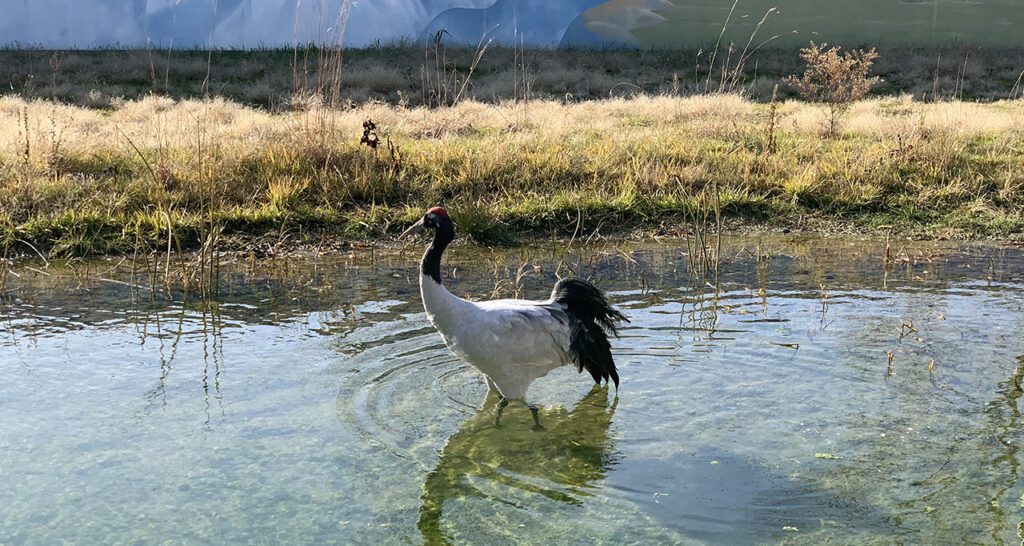ICF Plants the Seed for Solving Crane-Related Crop Damage

ICF has studied the interaction between cranes and agriculture for two decades. In that time ICF has been able to develop effective ways to prevent crane damage to planted corn seeds. This solution can be implemented by growers themselves, advancing conservation while sustainably solving damage to agriculture. Photo by Ted Thousand
Media Contact: Kate Fitzwilliams, Marketing/PR Specialist, 608-356-9462 ext. 147; 608-617-6002 (mobile)
An effective solution for damage that Sandhill Cranes cause to planted corn seeds has been used in record amounts during the just-completed 2012 planting season and represents a win-win solution for both conservation and agriculture.
Developed by the International Crane Foundation (ICF) and Arkion LLC, Avipel® has been available to farmers since 2006. Avipel® is a non-lethal substance, originally derived from plants, and can be applied to corn seeds before they are planted. Cranes avoid feeding on the treated, planted seed, but remain in the field to feed on other food items. The cost of using Avipel® is inexpensive enough to allow growers to use the product, thereby providing protection to their crop while remaining profitable. Few other wildlife damage control techniques have succeeded at such a large geographic scale and worked within the marketplace, assuring that conservation and agriculture interests mutually and sustainably benefit.
From 2006 to 2011, the total area of corn that farmers treated has more than doubled with 76,309 acres treated in WI alone during 2011. This year, the estimate for the area of crop treated is not yet finalized but the total is expected to be more than 25% higher than last year. Similar increases are expected in MI and MN.
Avipel’s® effective active ingredient is 9,10 Anthraquinone (AQ), a naturally occurring substance used by plants to deter bird foraging on fruits. Avipel® is marketed in both liquid and powder forms. Cranes detect AQ at very low levels and avoid it. Once Avipel® is deployed, cranes will avoid eating treated corn but remain in the same field and continue feeding on other food items such as waste grain and insects or worms. These other food items are often considered undesirable to growers because they are pests to corn.
“The use of Avipel® to prevent crop damage by cranes works for both cranes and farmers because it allows cranes to access agricultural habitats they depend upon while solving problems that cranes may cause for the landowner,” said ICF Field Ecology Director Jeb Barzen. “Additionally, solving problems that farmers face provides the opportunity to engage them with other projects that are critical for advancing wildlife conservation on private lands, which compose over 2/3 of North America’s land base.”
This past February, Wisconsin legislators introduced an assembly bill that would authorize the hunting of Sandhill Cranes in Wisconsin. The bill was justified as a necessary measure to reduce crop depredation caused by Sandhill Cranes, and to enable farmers to apply for wildlife damage abatement assistance and claim payments. While the bill did not pass, it ignited extensive debate.
ICF’s decades of Sandhill Crane research have shown that hunting is not an effective control strategy for crane damage to corn and our research on crop damage provides sustainable solutions that do not involve hunting. If a Sandhill Crane hunting season were to occur in Wisconsin, it is highly unlikely that the income derived from sales of Sandhill Crane hunting licenses would be sufficient enough to cover preventative costs, which are likely to exceed $ 1 million in 2012.
“The financial impacts on farmers from Sandhill Crane crop damage will not be solved by instituting hunting in the state,” said Barzen. “Allowing conflicts between wildlife and the farmers who provide much of the crane habitat will not further conservation. It is critical to engage in the discussion about crane hunting and to engage with good information so that these complicated issues can be resolved productively for all stakeholders.”
For more information on the availability of Avipel®, growers should check with their current seed retailer, seed distributor, call the Avipel® help line at 1-800-468-6324 or visit the Arkion website for more information. Growers in Minnesota can also reach Dr. Eileen Cullen (UW-Extension) for more information on the use of Avipel® at (608) 261-1507.
Founded in 1973, ICF is a non-profit conservation organization committed to a future where all crane species are secured in the wild – a future where people cooperate to protect and restore wild populations and their ecosystems. The success of ICF is possible solely through the generous support of our members and donors. Learn more about ICF’s Long-Term Sandhill Crane Research.


